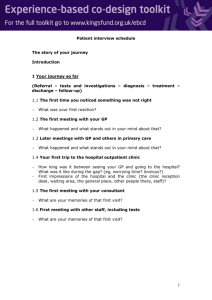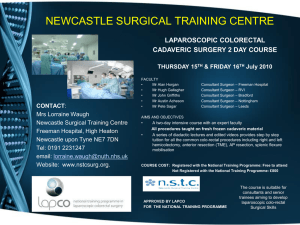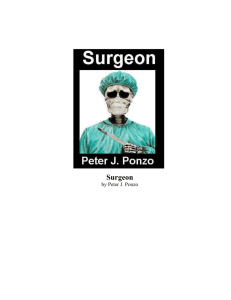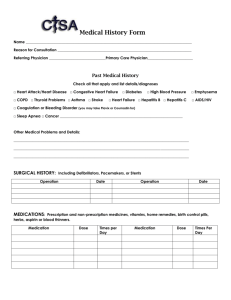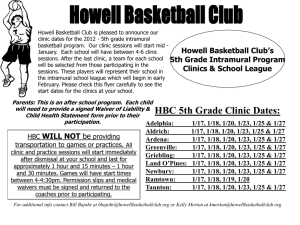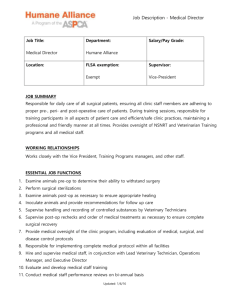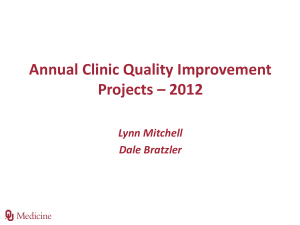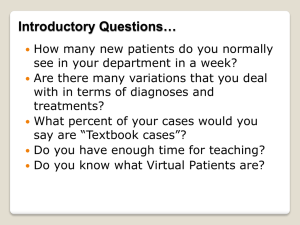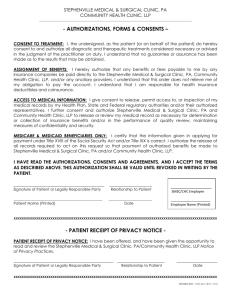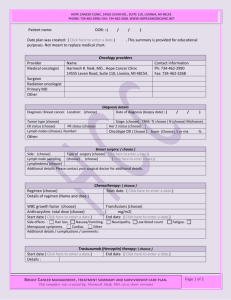Urgent Clinic Slots for emergency referrals to General Surgery as a
advertisement
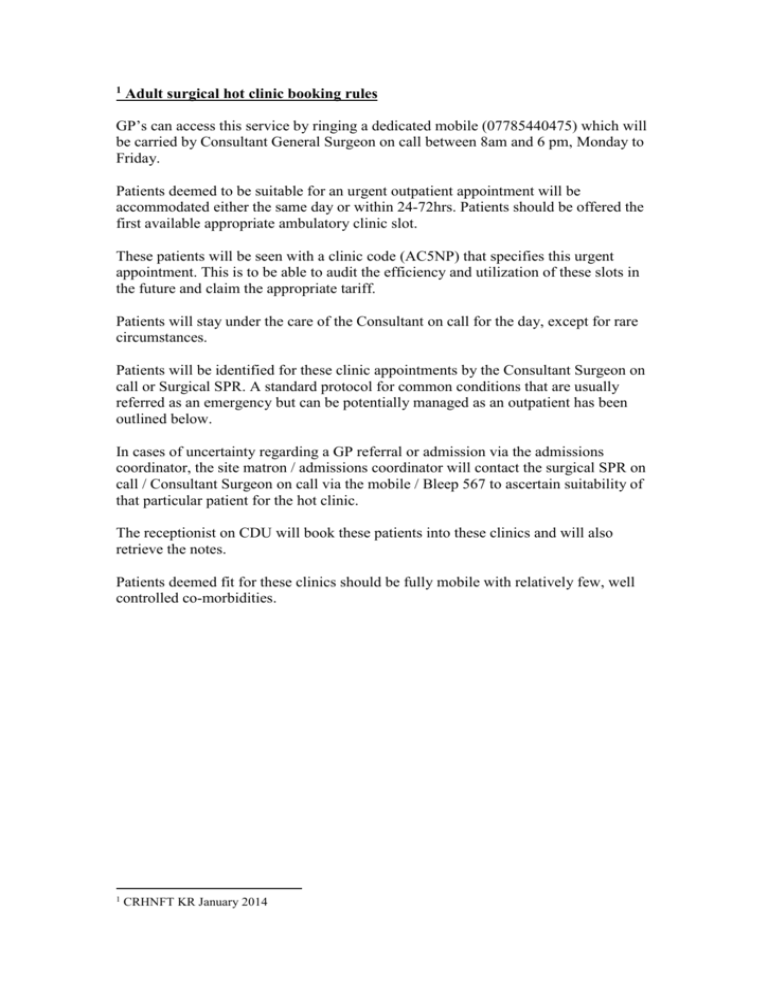
1 Adult surgical hot clinic booking rules GP’s can access this service by ringing a dedicated mobile (07785440475) which will be carried by Consultant General Surgeon on call between 8am and 6 pm, Monday to Friday. Patients deemed to be suitable for an urgent outpatient appointment will be accommodated either the same day or within 24-72hrs. Patients should be offered the first available appropriate ambulatory clinic slot. These patients will be seen with a clinic code (AC5NP) that specifies this urgent appointment. This is to be able to audit the efficiency and utilization of these slots in the future and claim the appropriate tariff. Patients will stay under the care of the Consultant on call for the day, except for rare circumstances. Patients will be identified for these clinic appointments by the Consultant Surgeon on call or Surgical SPR. A standard protocol for common conditions that are usually referred as an emergency but can be potentially managed as an outpatient has been outlined below. In cases of uncertainty regarding a GP referral or admission via the admissions coordinator, the site matron / admissions coordinator will contact the surgical SPR on call / Consultant Surgeon on call via the mobile / Bleep 567 to ascertain suitability of that particular patient for the hot clinic. The receptionist on CDU will book these patients into these clinics and will also retrieve the notes. Patients deemed fit for these clinics should be fully mobile with relatively few, well controlled co-morbidities. 1 CRHNFT KR January 2014 Conditions that can be referred directly to surgical hot clinics by GP’s General surgical conditions 1. 2. 3. 4. Abscesses that have ruptured or cellulitis needing assessment Small <3cm abscesses of trunk/ torso or peripheries not requiring GA for I&D Postoperative wound related problems – open/laparoscopic/others Symptomatic hernia (groin/ventral) which are not obstructed or strangulated – is it reducible? 5. Spontaneous haematomas (Varicose veins related/Rectus sheath) or anticoagulation related bruising 6. Foreign body insertion in subcutaneous tissues due to self harm Colorectal conditions 1. Fresh bright red rectal bleeding without any haemodynamic instability – small/moderate amount 2. Anal pain due to thrombosed haemorrhoids or fissure 3. Diverticular pain without signs of systemic sepsis or localised peritonism 4. Alteration in bowel habit without signs of obstruction or perforation 5. Stoma related problems i.e Peristomal bleeding, skin necrosis, infection etc 6. Flare up of proctitis in patients known to have this pathology – needs to be referred to IBD nurse 7. Minor bleeding following polypectomy after colonoscopy Upper GI conditions 1. Biliary colic without any signs of local peritonism or systemic sepsis 2. Mild to moderate painful jaundice without cholangitis or organ dysfunction (this should preferably be referred to gastroenterologists) 3. Epigastric pain with a diagnosis of dyspepsia, gastritis or reflux symptoms without persistent vomiting 4. Suspected non tender non-pulsatile upper abdominal mass 5. Oesophageal stent related problems 6. Gastrostomy related problems Breast Conditions – refer patient to breast clinic or contact breast care nurse 1. Spontaneous breast cysts or abscesses due to mammary duct ectasia or postpartum abscesses that can be aspirated 2. Implant related problems 3. Postoperative Wound related problems 4. New onset breast lump / mass 2 2 CRHNFT – KR January 2014
